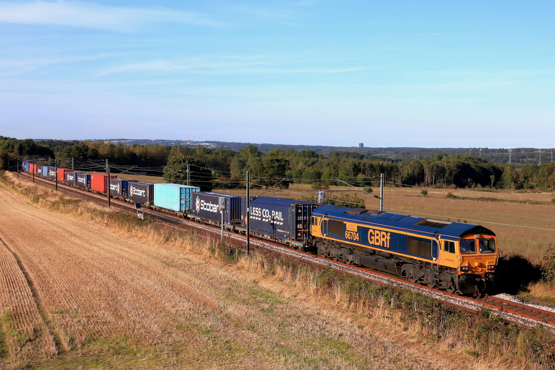
The mode shift revenue support scheme (MSRS) for rail freight has been extended by a year and will now end on 31 March 2026 the Department for Transport has confirmed.

The mode shift revenue support scheme (MSRS) for rail freight has been extended by a year and will now end on 31 March 2026 the Department for Transport has confirmed.
The scheme has proved highly successful since it was introduced in 2010 but was initially due to finish at the end of March.
The DfT initially asked for evidence during a review of the scheme last year to understand its effectiveness better as it looked to either update or end the scheme with several industry groups at the time urging the government to continue supporting it, including the Rail Freight Group and Rail Partners.
The scheme helps with costs of moving freight via rail rather than by road and has integral in the growth of rail freight in the U.K since it began. Last year, DfT funded the scheme with grants up to £16 million, with an average of nearly a million HGV journeys prevented. It currently has a budget of £20 million but the DfT has yet to confirm the scheme’s budget for 2025/6.
Maggie Simpson OBE, RFG’s Director General, said: “It is excellent news that the scheme has been extended for a further year. Support for increasing modal shift directly helps increase the use of rail freight, encourages business confidence in sustainable transport and eases congestion on the motorways.”
‘It is encouraging to see the Department for Transport has confirmed the continuation of the Mode Shift Revenue Support (MSRS) scheme for another year.
“Increasing incentives to drive modal shift is one of the key measures that the government can use to support the delivery of rail freight growth that Rail Partners identified in its most recent report, A Greener Track, which highlights that rail freight costs have risen three times faster than road over the past decade, partly as a result of government policies.”
The DfT has been looking at ways of simplifying the grants system for rail freight, whilst simultaneously encouraging growth. Last August, it announced a six-month scheme to waive track access charges for new rail freight entrants which has also proved successful. Freightliner was the first to launch a service between Tilbury and Manchester Trafford Park as part of the scheme with others to follow. That scheme’s future is currently unclear though, with the DfT unable to confirm if it will continue past its current end date of April.
The DfT is also understood to be reviewing the possibility of launching a scheme similar to the Freight Facilities Grant which currently operates in Scotland. The grant helps companies with the capital costs associated with moving freight by rail instead of road, by offsetting the extra costs of providing freight handling facilities. It has helped fund rail freight facilities in Blackford, Perthshire and Dunbar in East Lothian over the last five years.
Login to continue reading
Or register with RAIL to keep up-to-date with the latest news, insight and opinion.


















Login to comment
Comments
No comments have been made yet.